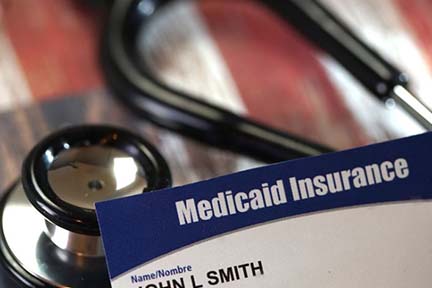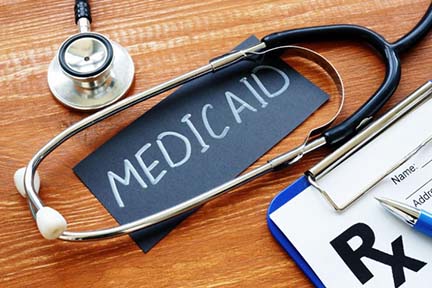
by orionontv | Jan 17, 2024 | Health and Wellness
Press Release
FOR IMMEDIATE RELEASE: Jan. 17, 2024
CONTACT: Lynn Sutfin, 517-241-2112, SutfinL1@michigan.gov
MDHHS seeking proposals to open Child and Adolescent Health Centers
LANSING, Mich. – The Michigan Department of Health and Human Services (MDHHS) is requesting proposals to expand the Child and Adolescent Health Center Program through school-based or school-linked health services. The models funded through this grant include Child and Adolescent Health Centers (CAHC) and School Wellness Programs (SWP).
The Child and Adolescent Health Center Program provides a safe and caring place for children and adolescents to learn positive health behaviors, prevent diseases and receive needed medical care and support. Clinical CAHC and SWP program models assist eligible children and adolescents with enrollment in Medicaid and provide access to Medicaid preventive services.
The Request for Proposal (RFP) is open to public and non-profit entities such as local health departments, community health centers, community mental health agencies, federally qualified health centers, non-profit hospitals/health systems, school districts, federally recognized Michigan tribes, Urban Indian Health Clinic programs and other health care or social service organizations qualified to provide school-based or school-linked health care services. Applicants must demonstrate collaboration between the local school district, health care providers and sponsoring agencies in the application.
The four-month award begins June 1 and ends Sept. 30, 2024. There is $4.46 million available, with maximum awards of $330,000 and minimum awards of $180,000. Successful applicants will be invited to apply for annual renewals based on availability of funds and acceptable performance. Priority will be given to proposed sites in counties without a current, state funded CAHC clinical program model as identified in a reference list of Michigan counties in the RFP.
A pre-application conference will be held to discuss this funding opportunity and provide instruction on using the EGrAMS system. The pre-application conference will be held at 11 a.m. Tuesday, Jan. 23, and will last approximately 90 minutes. The conference can be accessed at https://bit.ly/3RAfRq7. At the conclusion of the conference, this link can be used to access the recording of this webinar.
Any questions concerning the content of this RFP must be sent via email to [email protected] on or before Friday, Jan. 26. Questions may be discussed verbally at the pre-application conference. MDHHS will compile all relevant questions and answers and post these as well as any other clarifications or revisions to the initial RFP by Wednesday, Jan. 31, on the EGrAMS website.
Grant applications for the Child and Adolescent Health Center Program Implementation RFP must be submitted electronically through EGrAMS by 3 p.m., Tuesday, March 12.
For more information or to apply, visit the EGrAMS website and select “About EGrAMS” link in the left panel to access the “Competitive Application Instructions” training manual. The complete RFP can be accessed under the ‘Current Grants’ section under the “Public Health Administration” link and selecting the “CAHIP-2024” grant program.

by orionontv | Jan 12, 2024 | Health and Wellness
|
Press Release
FOR IMMEDIATE RELEASE: Jan. 11, 2024
CONTACT: Lynn Sutfin, 517-241-2112, Sutfinl1@michigan.gov
MDHHS seeking proposals for student internship stipend
program to enhance behavioral health workforce
LANSING, Mich. – As part of the state’s continuing commitment to improving access to behavioral health services for Michigan’s families, the Michigan Department of Health and Human Services (MDHHS) has issued a request for proposal (RFP) to establish a program that will provide stipends for student interns in Michigan’s public behavioral health system.
The Internship Stipend Program seeks to increase the availability of behavioral health services across the State of Michigan by incentivizing internship opportunities for college students. Approved sites will include Community Mental Health agencies, Pre-Paid Inpatient Health Plans, Indian Health Service/Tribally Operated Facility or Program/Urban Indian Clinic or public schools. People will be eligible for stipends if they are working toward behavioral health credentials from an accredited program and interning at approved sites in Michigan.
Organizations with expertise in or experience with internship programs or Michigan’s behavioral health care organizations are encouraged to bid on this RFP #240000000815. The Michigan Department of Technology, Management & Budget (DTMB) anticipates issuing one award.
The submission deadline is 1:50 p.m., Friday, Jan. 30. Proposals must be submitted electronically through the SIGMA Vendor Self-Service (VSS) system. To bid on solicitations, vendors must first be registered with SIGMA VSS. There is no charge to register.
For additional information on how to register and obtain a VSS account to bid on open solicitations, please visit DTMB – How to Register as a Vendor (michigan.gov). The program period tentatively begins the first quarter of 2024.
DTMB reserves the right to change mandatory minimum requirements, dates or any other information deemed necessary. |

by orionontv | Dec 12, 2023 | Health and Wellness

Press Release
FOR IMMEDIATE RELEASE: Dec. 12, 2023
MEDIA CONTACT: Bob Wheaton, 517-241-2112, WheatonB@michigan.gov
More than $1.6 million in grants from Children Trust Michigan
help prevent child abuse
Organizations based in Flint, Grand Rapids, Jackson, Lansing, Gratiot and Keweenaw receive funding
LANSING, Mich. – The Children Trust Michigan’s Board of Directors has approved $1,602,012 for six Michigan community-based organizations to support local child abuse prevention initiatives.
The Direct Services grants will be funded over a four-year period. Winning grant proposals were selected through a competitive bid process.
“We are strongly committed to keeping kids safe,” said Elizabeth Hertel, Michigan Department of Health and Human Services director. “Children Trust Michigan provides valuable funding to organizations in communities across Michigan so that they can put in place effective child abuse prevention programs. Children Trust Michigan prevention efforts are a key part of MDHHS’s Keep Kids Safe Action Agenda.”
Children Trust Michigan is housed within MDHHS.
“We congratulate the six successful grantees that emerged from an extremely competitive process with many more excellent proposals than we were able to fund,” said Suzanne Greenberg, Children Trust Michigan executive director. “We will work closely with our new grantees to build protective factors for children and families that will make safe, healthy and happy childhoods possible for Michigan’s children.”
The six organizations receiving funding are:
- Arbor Circle in Grand Rapids, $320,000 for its Nurturing Fathers program with a trusted messenger approach.
- Bethany Christian Services of Michigan in Grand Rapids, $124,932 for its Be Strong Families Parent Cafés to build fathers as leaders in their community.
- Family Services & Children’s Aid in Jackson, $210,000 for Parent Cafés and 24/7 Dad programs to build strong families and strong communities.
- Gratiot County Child Advocacy Association, $307,080 for Parent Cafés and 24/7 Dad programs to connect and engage fathers in the community.
- InvolvedDad of Flint, $320,00 for InvolvedDad & Nurturing Fathers program, preparing fathers to be leaders in their community, workplace and family.
- Keweenaw Family Resource Center, $320,000 for the 24/7 Dad, Parent Cafés and playgroups for fathers, which use multiple approaches to engage fathers.
The purpose of Direct Services grants is to fund community‐based child abuse prevention programs and services. The grants support families that experience challenges that could impact positive parenting and optimal child development. Strong emphasis is placed on assuring that funded initiatives are appropriately integrated into broader community plans for serving children and families.
With the newly funded initiatives, combined with other multi‐year grant commitments and the statewide network of local councils, Children Trust Michigan distributed more than $2.6 million in 2023 in support of child abuse prevention programming across the 83 counties in Michigan.
Visit the Michigan Children’s Trust Fund website to learn more. |

by orionontv | Dec 7, 2023 | Health and Wellness
|
Press Release
FOR IMMEDIATE RELEASE: Dec. 7, 2023
CONTACT: Lynn Sutfin, 517-241-2112, Sutfinl1@michigan.gov
MDHHS expands Medicaid coverage starting January 1
to include community health worker services
Michigan Community Health Worker Alliance chosen to facilitate
provider qualification assessment, certification and registry
LANSING, Mich. – To help promote preventive care and address health disparities, the Michigan Department of Health and Human Services (MDHHS) has expanded Medicaid coverage for Michigan beneficiaries to include community health worker (CHW) services. This new benefit goes into effect Jan. 1, 2024.
CHWs are trained public health professionals and trusted members of the community whose goal is to address social determinants of health and serve as links between residents and the health and social resources needed to improve well-being. CHW services focus on preventing disease, disability and other chronic health conditions or their progression, and promoting physical and mental health. The expanded Medicaid coverage includes health system navigation and resource coordination, health promotion and education and screening and assessment.
“This coverage is another step towards addressing health disparities, improving health outcomes and promoting preventive care within Michigan communities,” said Elizabeth Hertel, MDHHS director. “By integrating community health workers, MDHHS is working to enhance the overall well-being of Medicaid beneficiaries and promote a more holistic approach to health care.”
The new CHW services coverage is complementary to existing Medicaid strategies that already incorporate CHWs, including targeted case management, health homes models and Medicaid Health Plan contract requirements.
To support the implementation of this policy, MDHHS selected Michigan Community Health Worker Alliance through a competitive bid process to facilitate provider qualification assessment, certification and the development of a registry of certified providers. This registry will ensure Medicaid beneficiaries have access to qualified CHWs to deliver covered services.
For more information, about CHW coverage or other Medicaid policies, visit 2023 Medicaid Policy Bulletins (michigan.gov).
To sign up for Medicaid or to check available benefits, visit Michigan.gov/MIBridges. |

by orionontv | Dec 4, 2023 | Health and Wellness
|
Press Release
FOR IMMEDIATE RELEASE: Dec. 4, 2023
CONTACT: Chelsea Wuth, 517-241-2112, [email protected]
MDHHS recognizes National Influenza Vaccination Week Dec. 4-8
Michigan residents urged to get flu vaccine
LANSING, Mich. – The Michigan Department of Health and Human Services (MDHHS) is recognizing National Influenza Vaccination Week this week and reminding Michigan residents that it’s not too late to get flu, COVID-19 and RSV vaccines. All three of these vaccines can help protect against respiratory illnesses and can be given at the same time.
“Vaccines against respiratory illnesses are the best way to protect yourself and your families against the anticipated surge of these illnesses over winter months,” said Dr. Natasha Bagdasarian, chief medical executive. “It is not too late to get vaccinated this season — please get your flu, COVID-19 and RSV vaccines (if eligible) today to prevent yourself from the potentially severe consequences of influenza and other respiratory illnesses this holiday season and to help prevent further burden on our health care system.”
While it is ideal to get a flu vaccine before flu starts spreading in your community (usually in October each year), getting vaccinated is beneficial anytime flu viruses are circulating. Respiratory virus activity is beginning to increase nationally, which is why getting vaccinated now can still provide protection. Flu activity usually peaks in February, but significant flu activity can continue into May.
The Centers for Disease Control and Prevention (CDC) recommends annual influenza vaccination for all persons ages 6 months and older with rare exceptions. According to data from the Michigan Care Improvement Registry, as of Nov. 18, approximately 2.2 million people in Michigan have received their flu vaccine for the 2023-2024 flu season, which is 55% towards the state’s goal of reaching 4 million doses of flu vaccine administered this season.
For people younger than 65 years, CDC recommends any flu vaccine available during the 2023-2024 flu season. Options for this age group include inactivated flu vaccine, recombinant flu vaccine or live-attenuated flu vaccine for those ages 2-49.
Vaccination is particularly important for individuals at higher risk of developing serious flu complications, including young children, adults ages 65 years and older, people with certain chronic medical conditions and pregnant persons. Some children ages 6 months through 8 years will need two doses of flu vaccine this season to be fully protected. Individuals should speak with their health care provider to determine which vaccine is best for them.
It takes about two weeks after the vaccine is administered before the body builds up enough immunity to protect from severe illness from the flu. Michiganders should get their vaccine now to protect themselves before flu activity peaks in Michigan.
The Michigan Department of Insurance and Financial Services (DIFS) also reminds Michiganders that flu shots are an essential health benefit under the Affordable Care Act and are covered with no out-of-pocket costs by most health plans in Michigan.
“As the weather gets colder and Michiganders spend more time inside, getting a flu shot can help keep you and your family healthy without missing time from work or school,” said DIFS Director Anita Fox. “Most health plans cover flu shots at no cost, so I urge you to get your vaccine and to make sure that your kids and other family members are also protected.”
Michiganders with questions about their health insurance can contact DIFS at 877-999-6442 8 a.m. to 5 p.m. Monday through Friday or online at Michigan.gov/HealthInsurance.
Flu vaccines are widely available now at local health departments, physician offices and pharmacies around the state. Find a location near you using the Vaccine Finder. Visit Michigan.gov/flu for more information or visit IVaccinate.org to find answers to vaccine questions.
Visit Michigan.gov/CovidFluRSV and Michigan.gov/flufocus for updates on flu and respiratory illnesses in Michigan. |

by orionontv | Nov 30, 2023 | Health and Wellness
|
Press Release
FOR IMMEDIATE RELEASE: Nov. 29, 2023
CONTACT: Lynn Sutfin, 517-241-2112, Sutfinl1@michigan.gov
Over 168,000 Michiganders were renewed for Medicaid in October
Events with The Salvation Army helped 1,500 Michiganders maintain coverage
LANSING, Mich. – Today, the Michigan Department of Health and Human Services (MDHHS) announced it has renewed Medicaid or Healthy Michigan plan coverage for 168,088 people whose eligibility was up for redetermination in October.
Medicaid and Healthy Michigan Plan beneficiaries must renew their coverage over the next year to comply with federal legislation that requires states to resume the redetermination of Medicaid eligibility. Annual renewals were paused for three years during the COVID-19 pandemic. In Michigan annual renewals are being staggered to take place monthly through May 2024.
Medicaid renewal events hosted in partnership with The Salvation Army Great Lakes Harbor Light System have assisted Medicaid beneficiaries going through the redetermination process. Recent events helped 1,500 Medicaid beneficiaries in Southeast Michigan with the renewal process.
“MDHHS is working to preserve health benefits for all qualifying residents and will continue to use every option available to achieve that outcome,” said MDHHS Director Elizabeth Hertel. “We want to be sure that as many Michiganders as possible can continue to receive Medicaid coverage and appreciate the partnership of The Salvation Army and others in this effort.”
The latest data on Medicaid renewals can be found on MDHHS’ online dashboard.
The dashboard – which is updated monthly – shows that 804,613 people have been renewed to date. The department is awaiting completed enrollment forms from another 85,795 people who were up for renewal in October and have until the end of November to return their paperwork.
There were 13,618 people who were disenrolled in October because they were no longer eligible and 2,806 whose eligibility was not renewed for procedural reasons – such as not providing requested verification documents like driver’s license, pay stubs and bank statements. MDHHS can reinstate eligibility back to the termination date for people who were disenrolled based on a procedural reason and are subsequently found to be eligible for Medicaid during a 90-day reconsideration period.
Additional MDHHS efforts to help Michiganders keep their coverage are possible as a result of the federal government releasing new flexibilities and strategies to state officials to lessen the impact of the resumption of Medicaid renewals.
This includes:
- Extending the renewal date to May 2024 for beneficiaries undergoing life-saving treatments, such as chemotherapy, radiation, immunotherapy infusions or dialysis.
- Allowing managed care plans to assist enrollees they serve in completing and submitting Medicaid renewal forms.
- Sharing lists with managed care organizations of their enrollees who are due for renewal or have not responded to provide additional outreach to those beneficiaries.
- Reinstating eligibility back to the termination date for people who were disenrolled based on a procedural reason – such as not returning reenrollment forms on time – and are subsequently found to be eligible for Medicaid during a 90-day reconsideration period.
- Providing beneficiaries an extra month to submit paperwork to help avoid loss of health care coverage.
MDHHS advises all Medicaid enrollees to check their renewal month and renew online at Michigan.gov/MIBridges. MDHHS will send monthly renewal notices four months before a beneficiary’s renewal date and follow up with text messages, phone calls, and emails during their renewal month.
Updated data on September renewals that were extended through October are also available on the online dashboard.
MDHHS advises families to return any renewal paperwork from the department even if they believe they are no longer eligible for Medicaid. Some members of a household can obtain health care coverage even when others are not eligible. For example, a child may be eligible for MiChild, even if their parent is not eligible for other Medicaid programs. Or some Michiganders may have income that is over the income limit for one program and still be able to obtain health care benefits through another program.
MDHHS will assess a household’s eligibility for all Medicaid programs – not just for the programs in which someone is currently enrolled, and also for each family member in the household.
Michiganders who no longer qualify for Medicaid will receive additional information about other affordable health coverage options available, including on HealthCare.gov. Affected Michiganders will be able to shop for and enroll in comprehensive health insurance as they transition away from Medicaid, and many Michiganders can purchase a plan for less than $10 per month.
Michigan Medicaid beneficiaries can learn more, including what they need to do to prepare for renewals, on the Medicaid Benefit Changes website. |







